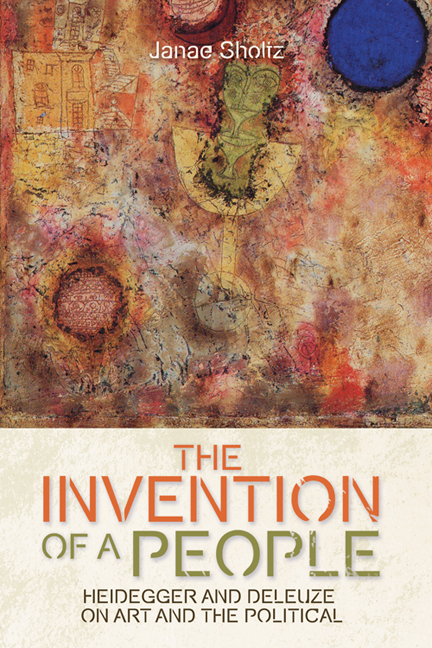2 - Deleuze's Nietzsche
from PART I - DIVERGENCE, THE POINT OF NIETZSCHE
Published online by Cambridge University Press: 05 August 2016
Summary
Given that Heidegger is the great thinker of the end of philosophy as metaphysics, a comparison with Deleuze may not seem to be an immediately forthcoming project. Deleuze supposedly never had the patience for such claims, and is known for characterising his own project in terms of metaphysics, which would seem to render their projects antithetical. Statements such as: ‘I feel like a pure metaphysician … Bergson says that modern science hasn't found its metaphysics, the metaphysics it would need. It is this metaphysics that interests me’, could be interpreted as a rejection of Heidegger's main premise. For some, this rejection has represented the slamming of the door on any productive comparisons. Obviously, we are opposed to such a reading.
Deleuze's qualification, ‘it is this metaphysics that interests me’, necessitates a closer look into what metaphysics actually means for Deleuze. In 1959–60, he gave several lecture courses on Bergson, courses which, notably, were paired with a consideration of Nietzsche. As Ansell Pearson observes:
Bergson, Deleuze notes in the lecture of 28 March 1960, participates in the Nietzschean moment of philosophy … [however] where Nietzsche tells the history or story of how the ‘true world’ finally became a fable, which is also a story of the devaluation of the highest values and the advent of nihilism, Bergson seeks to reorient metaphysics, to bring science and philosophy into a new rapport.
Deleuze is thinking these two in tension with each other – the resolution of which indicates that overcoming metaphysics (Nietzsche's prerogative) is not the end of metaphysics, but a new kind of metaphysics (Bergson's prerogative), one that would have to be a matter of immanence rather than transcendence. This is exactly what Deleuze gives us in Difference and Repetition by unearthing the conditions of real experience.
When one then considers that the reversal of Platonism is an organising aim for Deleuze, indeed the task for contemporary philosophy (DR, 82/59) – evident from his 1966 lecture entitled ‘Reversing Platonism’ and remaining a continuous theme through Difference and Repetition (1968) and Logic of Sense (1969) – the comparison between Deleuze and Heidegger becomes more palpable.
- Type
- Chapter
- Information
- The Invention of a PeopleHeidegger and Deleuze on Art and the Political, pp. 47 - 70Publisher: Edinburgh University PressPrint publication year: 2015

